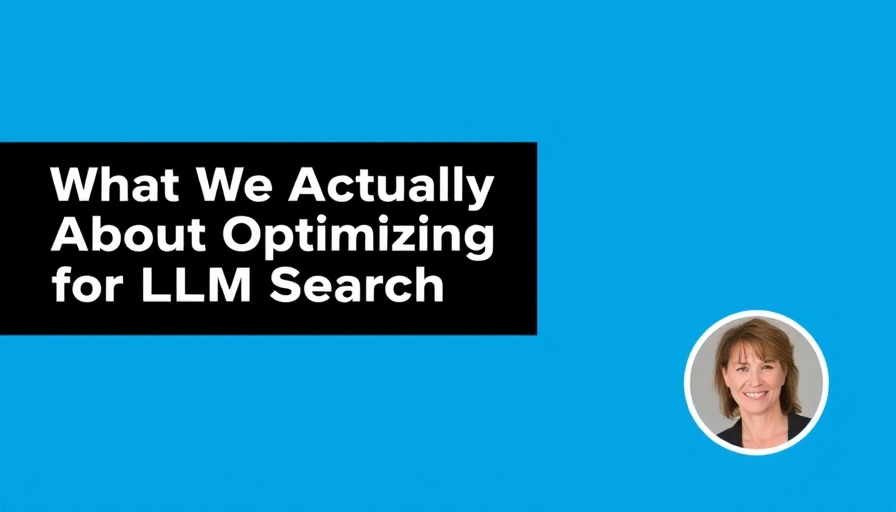
Unveiling LLM Search: What You Need to Know
When we think of internet searches, traditional search engines often come to mind. However, with the rise of large language models (LLMs), a significant shift is taking place. Understanding how to navigate this new landscape is crucial for small and medium-sized businesses (SMBs) aiming for visibility online.
The Shift from Traditional to LLM Search
LLM search represents a transformative approach in the way we seek information online. Historically, search engines would provide a list of links and ads that users would sift through to find what they needed. In contrast, LLM search delivers direct answers in natural language, often backed by relevant sources.
This means that the journey from query to answer is shorter and, in many cases, more efficient for users. However, for SMBs, it introduces new challenges and opportunities. Instead of focusing solely on rankings in traditional search results, businesses now need to ensure that their content is easily discoverable and usable within these AI-generated responses.
Why Understanding LLM Search Matters
The evolution from traditional search to LLM search is not just a technical transformation; it's about understanding user intent in this new ecosystem. As highlighted in recent research, users are looking for answers without having to navigate through multiple links. For SMBs looking to engage effectively with their audience, this means adapting to new forms of content that can be integrated into these responses.
To be effective, businesses must recognize the changing expectations of their target audiences. Users are moving toward conversational queries which often yield more specific information. As an SMB, it's vital to focus on providing comprehensive answers to potential customer inquiries.
The Key Differences Between Traditional Search and LLM Search
Understanding the distinctions between traditional search and LLM search can inform your marketing strategies significantly. Here’s a concise comparison:
- Main Goal: Traditional search aims to help users find relevant web pages, while LLM search seeks to provide direct answers in natural language.
- Answer Composition: In traditional search, users receive a list of links, ads, and quick fact panels. In LLM search, they get synthesized responses, often with brief explanations and citations.
- Source of Information: Traditional search relies on a constantly updated index of the web, whereas LLM search combines the model's training data with real-time searches.
- Traffic Outcomes: Traditional search drives users to websites, generating clicks, while LLM search may fulfill user intent directly, leading to fewer clicks.
- Influencing Factors: Traditional SEO methods like keywords and backlinks remain crucial, but being viewed as a trusted source for LLMs is equally important.
Empowering SMBs in the Age of AI
As a small or medium-sized business, you might wonder how best to position yourself in a world increasingly governed by AI and LLMs. Embracing the new SEO landscape means aligning your content with what LLMs will likely cite and using traditional practices to bolster your visibility.
Creating in-depth articles, maintaining a friendly and clear tone, and ensuring that your content answers potential customer questions can significantly enhance your chances of being featured in AI-generated responses. This requires a blend of storytelling and factual information, making your brand both relatable and authoritative.
Looking Ahead: The Future of LLM Search
As the landscape continues to evolve, businesses that adapt to prioritize LLM search will likely thrive. This means continuously experimenting with various content strategies, observing what resonates with audiences, and remaining agile in the face of technological changes. By doing so, you position your business to not only participate but to lead in an increasingly AI-driven marketplace.
By integrating actionable insights from your research, leveraging storytelling, and maintaining a customer-first approach, your brand can shine in this new digital era. Now is the time to reevaluate your strategies and consider how the principles of LLM search align with your marketing goals.
Conclusion: Take Action Now
As we've explored, optimizing for LLM search is no longer optional for businesses that wish to remain relevant. Begin integrating these insights into your marketing today. Consider what kind of content is most likely to be cited by LLMs, how you can answer user queries in a conversational manner, and don’t hesitate to adapt your SEO strategies. The future of search is here—it’s time to seize the opportunity!
 Add Row
Add Row  Add
Add 



Write A Comment